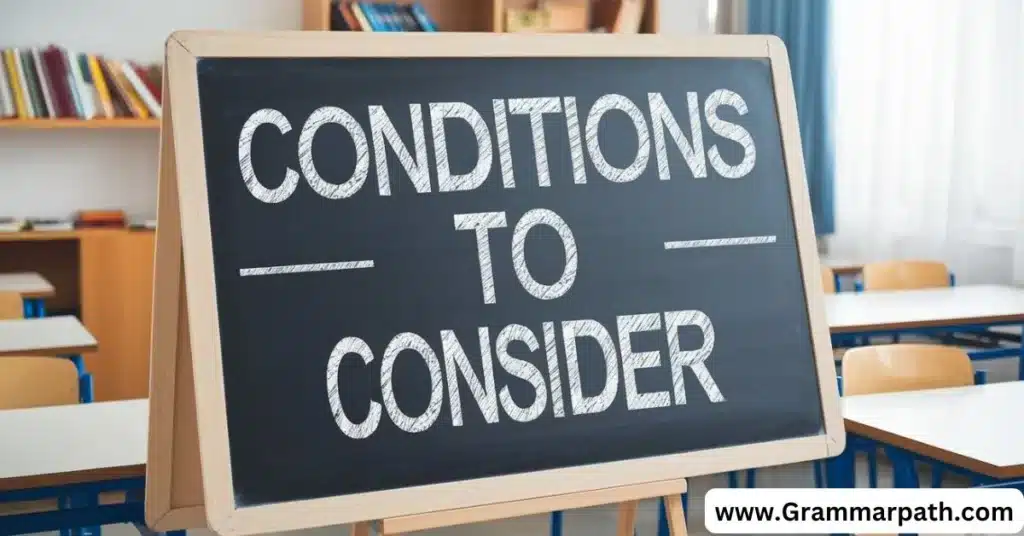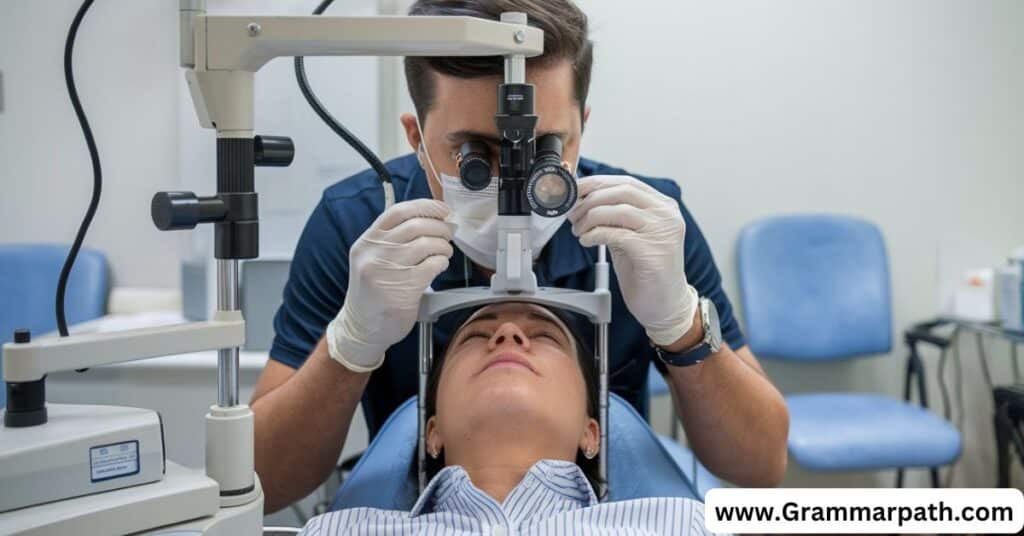
Take Two and Call Me in the Morning (Explained)
Take two and call me in the morning. We’ve all heard it before whether from movies, TV shows, or perhaps even your own doctor. This phrase has made its way into everyday language as a lighthearted suggestion to rest and take a simple remedy for mild discomfort. But what does it actually mean? Is it just about taking two pills, or is there more to this common expression?
In this article, we’ll break down the meaning behind the phrase, explore its origins, and show you how to incorporate it into everyday conversations.
The Meaning Behind “Take Two and Call Me in the Morning”
At its core, “take two and call me in the morning” is a catchphrase that refers to a common medical practice of advising a patient to take two aspirin (or any basic remedy) and wait to see if their symptoms improve. It suggests that the issue at hand isn’t severe enough to require immediate attention but might benefit from a little time and a simple remedy. If the problem persists after the remedy, then it’s time to reach out to a healthcare provider.
This phrase also implies self-reliance balanced with a sense of responsibility—encouraging you to manage minor illnesses on your own but with the understanding that professional advice is there if needed.
Origin of “Take Two and Call Me in the Morning”
The exact origin of “take two and call me in the morning” is debated, but it likely stems from early 20th-century medical practices when doctors would suggest simple over-the-counter solutions like aspirin for mild ailments. Aspirin was, and still is, considered a go-to remedy for headaches, body aches, and fevers. This phrase has since evolved into a pop culture shorthand for dealing with minor issues, whether medical or not.
Incorporating the Phrase into Everyday Language
You don’t have to be a doctor to use “take two and call me in the morning”. It can be thrown into casual conversations as a way to encourage someone to take it easy, especially when they seem overwhelmed. For example:
Scenario Example (Email):
Subject: Feeling under the weather?
Hey James,
I know you’re pushing through some tough deadlines, but if you’re feeling that headache coming on again, maybe it’s time to take two aspirin and call me in the morning! Rest up and let’s catch up tomorrow when you’re feeling better.
This simple phrase can make its way into both personal and professional contexts, giving you a gentle way to offer advice without sounding too clinical.

Different Ways of Conveying the Same Emotion
Of course, not everyone is going to say “take two and call me in the morning”. There are plenty of alternative phrases that convey the same laid-back sentiment, depending on the situation:
- “Why don’t you take it easy tonight and check in with me tomorrow?”
- “Rest up, and if it doesn’t get better by the morning, let me know.”
- “Take a couple of Advil, and let’s talk tomorrow if it’s still bugging you.”
Scenario Example (Text Message):
Hey Sarah, sorry to hear about your migraine. Take two Advil and call me in the morning if you still feel rough, okay?
In each case, the message is clear: address the problem with a simple solution, but don’t hesitate to seek help if needed.
When and Where to Use the Phrase
So, when should you actually use “take two and call me in the morning”? It’s perfect for situations where a mild issue arises, and you want to offer some light-hearted, non-urgent advice. You might use it when:
- A friend complains about a mild headache.
- A co-worker is stressing over a non-crucial issue at work.
- Someone shares that they have minor aches or pains that don’t seem alarming.
For example:
Scenario Example (Phone Call):
“Hey, Jessica, you’ve been working hard all week. It sounds like you’re stressed out. Take two aspirin, call me in the morning if you’re still feeling off, but I’m sure you just need a little rest!”
Conditions to Consider
There are certain conditions where using “take two and call me in the morning” is appropriate:
- Mild aches and pains: Headaches, minor muscle pain, and body aches are perfect candidates for this advice.
- Common cold or flu-like symptoms: If someone has manageable symptoms like a runny nose or light fever, they may just need to rest and see how they feel in the morning.
- Non-emergency digestive problems: Mild indigestion or discomfort that isn’t severe may benefit from a simple remedy.
In these cases, the phrase promotes self-care without undermining the importance of professional medical advice for serious issues.

Circumstances for Re-examination
While “take two and call me in the morning” works for mild issues, there are situations where further action may be necessary:
- If the symptoms worsen or persist for more than 24 hours.
- If new symptoms develop that weren’t initially present, such as dizziness or shortness of breath.
- If the issue is accompanied by severe pain, especially in the chest or abdomen.
In these cases, it’s crucial to reach out to a healthcare provider immediately.
Pro Tip: Understanding Self-Reliance in Healthcare
The most important part of this article lies in understanding the balance between self-reliance and seeking medical guidance. Minor health issues often don’t require a trip to the doctor, and managing them independently can save time and resources. However, knowing when to reach out for help is essential to avoiding complications. Keep in mind: self-care is powerful, but it’s only part of a larger healthcare picture.
Historical Context of “Take Two and Call Me in the Morning”
The history of the phrase “take two and call me in the morning” traces back to the early 1900s when aspirin was hailed as a wonder drug. Before antibiotics became commonplace, aspirin was frequently prescribed for everything from fevers to pain relief. Doctors would hand out advice to take two aspirin and check in the next day if symptoms hadn’t improved. The reasoning was simple: most minor ailments would resolve on their own with rest and a mild pain reliever.
The expression also gained momentum as healthcare shifted towards a more patient-led approach. People were encouraged to take personal responsibility for their well-being, turning to professional help only if self-care didn’t suffice. This balance of self-reliance and professional advice became a hallmark of modern healthcare practices.
Incorporating “Take Two and Call Me in the Morning” in Everyday Language
Beyond its medical roots, this phrase has evolved into a widely recognized idiom used in everyday language. While it’s commonly employed in health-related contexts, people have adopted it for various situations where a little time and a simple fix could do the trick.
For example, you might use it when a colleague is panicking over a minor work issue that doesn’t require immediate attention. Here’s how you could phrase it in an office email:
Scenario Example (Work Email): Subject: No need to stress—simple fix! Hey Alex, I saw your message about the software glitch, but it looks like a quick restart should solve it. Take two and call me in the morning if it’s still acting up, and we’ll figure it out from there. No worries!
This light-hearted use of the phrase shows how it can ease tension, signaling that the problem at hand isn’t as urgent as it may seem. The phrase has become shorthand for “don’t overthink it—give it a little time.”
When to Avoid Using the Phrase
While “take two and call me in the morning” works wonders for everyday problems, it’s important to recognize when the situation calls for immediate action rather than a laid-back approach. In more serious circumstances, using this phrase could downplay an urgent issue, leading to delayed action when swift medical intervention is needed.
Situations where you shouldn’t use the phrase include:
- Serious health concerns like chest pain, difficulty breathing, or sudden, sharp pain.
- Emotional distress where the individual might need support or professional guidance.
- Professional environments where urgent decisions need to be made, and the “wait and see” approach wouldn’t be appropriate.
For example:
Scenario Example (Medical Context): If a friend calls you complaining of chest pain and shortness of breath, it’s essential to urge them to seek medical help immediately. In this case, you’d say, “This sounds serious—you need to see a doctor now.” Recommending rest and a couple of aspirin would be irresponsible and could have dire consequences.
Conditions for Immediate Medical Attention
In certain cases, ignoring symptoms or delaying treatment can lead to worse outcomes. Medical guidance is crucial when symptoms include:
- Severe, persistent pain.
- Unexplained swelling or rashes.
- Difficulty breathing or chest pain.
- High fever lasting more than 48 hours.
By keeping an eye on these red flags, you can help yourself or others avoid serious complications. Self-reliance balanced with appropriate medical intervention is the goal, but knowing when to escalate an issue to a healthcare provider is key.

Alternatives to “Take Two and Call Me in the Morning”
If you’re looking for other ways to convey the same easygoing sentiment, you can consider these variations:
- “Give it some time and check back tomorrow.” This maintains the idea of waiting things out while keeping the tone casual.
- “Take a breather, and if it doesn’t clear up, let me know.” Perfect for less medical scenarios, like work or social stress.
- “Sleep on it, and if you’re still worried, we’ll figure it out in the morning.” This focuses on resting and resetting before jumping into action.
Scenario Example (Family Conversation): Dad, I’ve been stressing over this job interview, and I’m not sure if I’m ready. I feel like I’m getting sick from the stress. “Hey, why don’t you take two Advil and call me in the morning? After some rest, you’ll feel a lot better about it, I promise.”
These alternative phrases are adaptable and keep the mood light without diminishing the importance of action if needed.
How Healthcare Practices Have Evolved
Modern healthcare practices place a strong emphasis on self-care in contemporary healthcare, with the rise of digital tools and telemedicine allowing patients to manage minor ailments from the comfort of their homes. Gone are the days of running to the doctor for every sniffle or headache. Instead, patients are empowered to make decisions about when to visit a healthcare provider and when to treat symptoms at home.
However, this shift also requires individuals to recognize the limits of self-reliance. Over-the-counter remedies and rest can handle minor illnesses, but serious conditions demand professional evaluation. For this reason, the balance of medical guidance and personal care remains as crucial as ever.
Frequently Asked Question
What does “Take Two and Call Me in the Morning” really mean?
This phrase suggests using a simple remedy for minor issues and only contacting a healthcare provider if symptoms persist.
Why is this phrase associated with two aspirin?
Aspirin has long been a common remedy for headaches and minor pains, making it a symbol for quick, easy relief.
How should I use this phrase in everyday language?
It can be used in both medical and casual contexts to advise someone to relax and use a basic remedy for minor issues.
Are there alternative ways to convey the same message?
Yes! Try saying, “Rest up, and we’ll check in tomorrow” or “Take it easy and call me if it gets worse.”
Under what circumstances should I reconsider and seek immediate medical attention?
If symptoms worsen, persist for over 24 hours, or new symptoms arise, it’s essential to contact a healthcare provider.
Conclusion
“Take two and call me in the morning” has transcended its medical roots, becoming a friendly way to say, “take care of it yourself for now, but don’t hesitate to ask for help if needed.” Whether you’re soothing a headache or advising a stressed-out colleague, this phrase can provide comfort and a sense of control while also reminding us that professional help is always an option.

Emily Olivia is an experienced writer specializing in grammar and English language topics. With a passion for clarity and precision, she shares valuable insights on synonyms, grammar rules, and writing tips to help readers enhance their language skills on Grammar Path.





